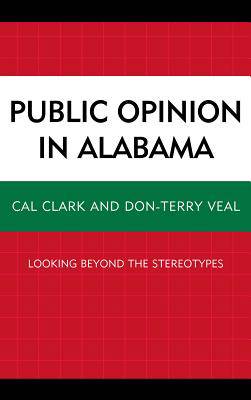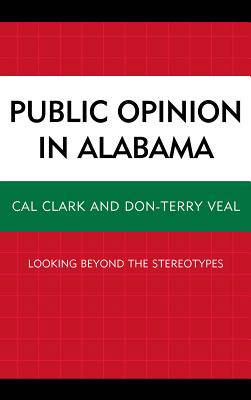
- Afhalen na 1 uur in een winkel met voorraad
- Gratis thuislevering in België vanaf € 30
- Ruim aanbod met 7 miljoen producten
- Afhalen na 1 uur in een winkel met voorraad
- Gratis thuislevering in België vanaf € 30
- Ruim aanbod met 7 miljoen producten
Zoeken
Public Opinion in Alabama
Looking Beyond the Stereotypes
Cal Clark, Don-Terry Veal
Hardcover | Engels
€ 186,95
+ 373 punten
Omschrijving
This book provides an in-depth examination of public opinion in Alabama to see whether it follows the stereotype of ideological and partisan polarization in the United States. The authors show that even in such a staunchly conservative state, public opinion is considerably more nuanced and complex than this stereotype, suggesting a need to transcend the competing conservative and liberal orthodoxies.
Specificaties
Betrokkenen
- Auteur(s):
- Uitgeverij:
Inhoud
- Aantal bladzijden:
- 114
- Taal:
- Engels
Eigenschappen
- Productcode (EAN):
- 9780739145418
- Verschijningsdatum:
- 19/11/2010
- Uitvoering:
- Hardcover
- Formaat:
- Genaaid
- Afmetingen:
- 160 mm x 231 mm
- Gewicht:
- 430 g

Alleen bij Standaard Boekhandel
+ 373 punten op je klantenkaart van Standaard Boekhandel
Beoordelingen
We publiceren alleen reviews die voldoen aan de voorwaarden voor reviews. Bekijk onze voorwaarden voor reviews.








